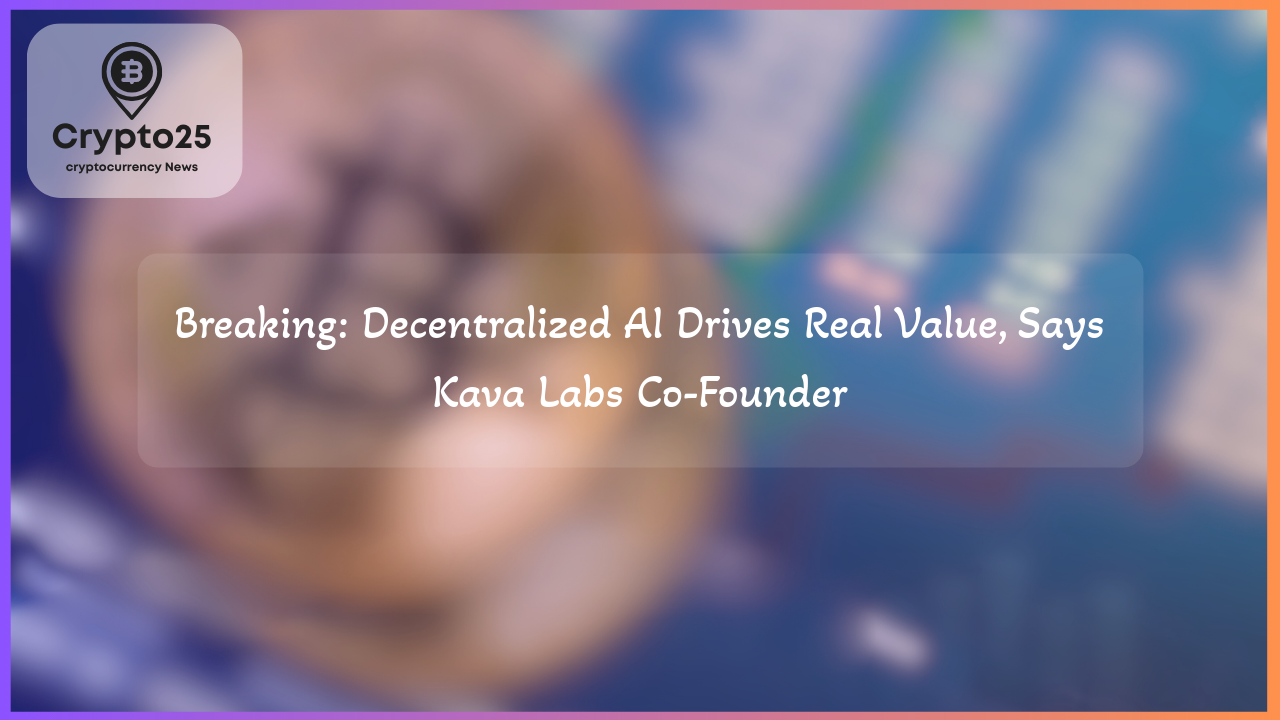
The growing intersection between artificial intelligence and blockchain technology is sparking a transformation within the crypto industry. Kava Labs, a leader in decentralized finance, is taking bold steps to integrate AI, positioning itself as a pioneer in delivering decentralized artificial intelligence solutions. Unlike the fleeting nature of crypto trends like NFTs, AI tokens are showing signs of sustainability and long-term potential, promising to redefine the technological landscape.
### Why Decentralized AI Tokens Are More Than a Passing Trend
The crypto ecosystem has seen its fair share of hype cycles, from the rise and fall of NFTs to speculative meme coins. However, AI tokens, driven by real-world utility, are emerging as a game changer. Scott Stuart, co-founder of Kava Labs, believes the underlying technology behind decentralized AI offers a resilience that speculative trends cannot match. He explained that, unlike NFTs, which are often “memes built on memes,” decentralized AI possesses a robust value proposition and utility that ensures its relevance irrespective of market fluctuations.
Despite the broader crypto market facing downturns, AI-related tokens like KAVA are distinguishing themselves. For instance, KAVA has only dropped by 5% since January, standing strong against the CoinDesk 20 index, which is down 29%. In contrast, other AI tokens such as Fetch.ai (FET) and Virtuals Protocol’s native token have suffered significantly, losing 60% and 85% of their value, respectively. These comparative metrics symbolize a major shift as projects built on credible narratives and impactful technology begin outperforming speculation-driven assets.
| Token | Performance YTD |
|---|---|
| KAVA | -5% |
| Fetch.ai (FET) | -60% |
| Virtuals Protocol | -85% |
### How Kava Labs Is Leveraging Decentralized AI
Kava Labs began as a DeFi project on the Cosmos blockchain but has since shifted gears to focus on decentralized artificial intelligence as a strategic differentiator. This pivot enables Kava to stay competitive in an increasingly consolidated market while carving a niche in blockchain-native AI solutions. The company has rolled out a suite of innovative AI tools, including the Kava AI platform and marketplace, a chatbot powered by DeepSeek’s R1 model, and a decentralized GPU infrastructure designed for processing heavy AI workloads.
Stuart has emphasized that decentralized AI’s ability to remain transparent and auditable is vital in a world growing skeptical of proprietary, closed-source technology. In contrast to platforms like OpenAI, which Stuart claims operates as “black box” systems that could serve undisclosed agendas, Kava’s open-source framework allows anyone to verify AI model parameters, ensuring transparency and trust. This ethos echoes Ethereum’s approach to smart contracts and is already resonating with regulators and blockchain enthusiasts alike.
The integration of decentralized AI into the crypto space also highlights one significant trend: the increasing alignment of blockchain with AI transparency. Kava Labs sees a unique opportunity to anchor this development in U.S.-based infrastructure, capitalizing on the growing regulatory push to localize and regulate emerging technologies.
### Decentralized AI Offers Resilience Beyond Hype Cycles
The long-term viability of decentralized AI tokens lies not only in their utility but also in the broader societal implications of AI governance. Stuart argues that transparency and decentralization will be key in addressing growing anxieties about closed-source AI models. These proprietary systems, he says, can subtly manipulate users by optimizing algorithms for corporate or geopolitical agendas rather than individual benefit. This concern has also been echoed by Simon Kim, CEO of South Korea’s Hashed, who labeled closed-source AI as a “God-like entity” with unchecked influence over society.
Through an “open-weight” approach, Kava Labs aims to set a new standard for AI by ensuring its technology is auditable, ethical, and open-source. This approach aligns with the increasing demand for regulatory oversight on AI transparency as the U.S. government prioritizes homegrown and certifiable technological advancements. For Kava, this commitment to openness represents more than just a differentiator—it is a cornerstone for reshaping the future.
As blockchain evolves beyond financial applications, its intersection with AI offers a glimpse into an innovative future. Decentralized AI challenges the norms by empowering individuals rather than corporations, delivering solutions that prioritize transparency, security, and accessibility. Kava Labs’ ability to adapt and lead in this transformative era underscores its role as a visionary leader, merging the best of blockchain and AI for a more equitable digital ecosystem.
In a rapidly advancing world, the future of AI isn’t about corporate dominance. It’s about decentralization, openness, and global collaboration—and Kava Labs is at the forefront of that revolution, building the foundation for what decentralized artificial intelligence can achieve.
